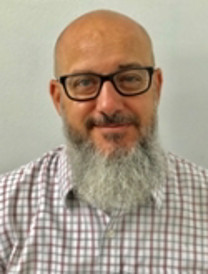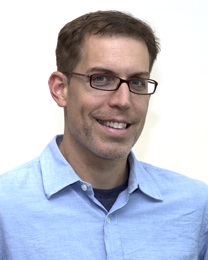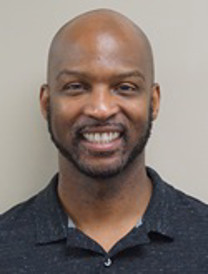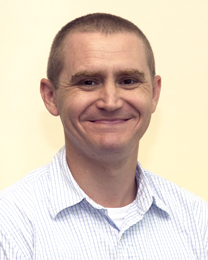New course covers positive psychology
Jointly taught by four faculty members
A new special topics course taught by four faculty from the College of Psychology’s Department of Psychology and Neuroscience.
The course, PSYC 4900 - The Science and Application of Positive Psychology, is jointly taught by Associate Professors Tim Razza, Psy.D., Weylin Sternglanz, Ph.D., Myron Burns, Ph.D., and Jonathan Banks, Ph.D.




Razza said the faculty approach positive psychology from a scientific perspective, not as a self-help course. The course is divided up into 3-4 week sections, with each faculty handling areas that relate to their expertise.
“It’s demonstrating how what we know in psychology can extend to overall wellness and benefits,” Razza said. “It looks at how we can enhance typical everyday functioning.”
After an introductory week, Banks spent his section focusing on stress and its impacts, mindfulness, and expressive writing. In the second section, Burns focused on empathy and relationships, optimism and self-efficacy, and character strengths. For the third section, Sternglanz is covering positive emotions, measuring happiness, money and happiness, and altruism. For the final section, Razza will examine gratitude, meaning, and other topics in positive psychology that bring everything covered throughout the semester together.
Burns said the course is about more than focusing on the notion of happiness.
“When things go wrong, how can look at those situations in order to build and move on and grow from that?” he said.
Sternglanz said there isn’t as much research on topics like positive emotions, so part of the focus of positive psychology is to collect what research has been done in these areas and encourage further research.
“Researchers looked at the field as a whole and saw that so much of our psychology is about people’s problems, and what can we do to solve problems? What about enhancing all the positive things we have in our life?” Sternglanz said.
The course is open to any undergraduate student who has taken PSYC 1020 - Introduction to Psychology. Banks said 68 students registered for the class, with 12 being non-Psychology majors.
“We didn’t want to make the so specific that only Psychology majors would have the requisite knowledge to come in and do well in the course,” he said.
Banks said students’ knowledge of positive psychology was measured in the first week of the semester and will be compared to the end of the semester to see what students pick up and incorporate.